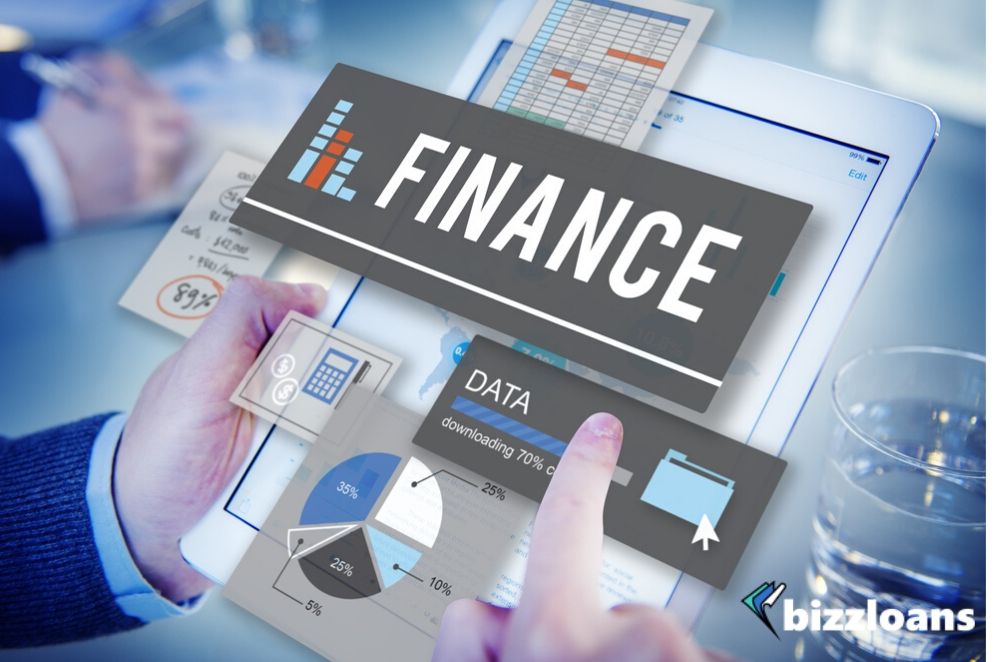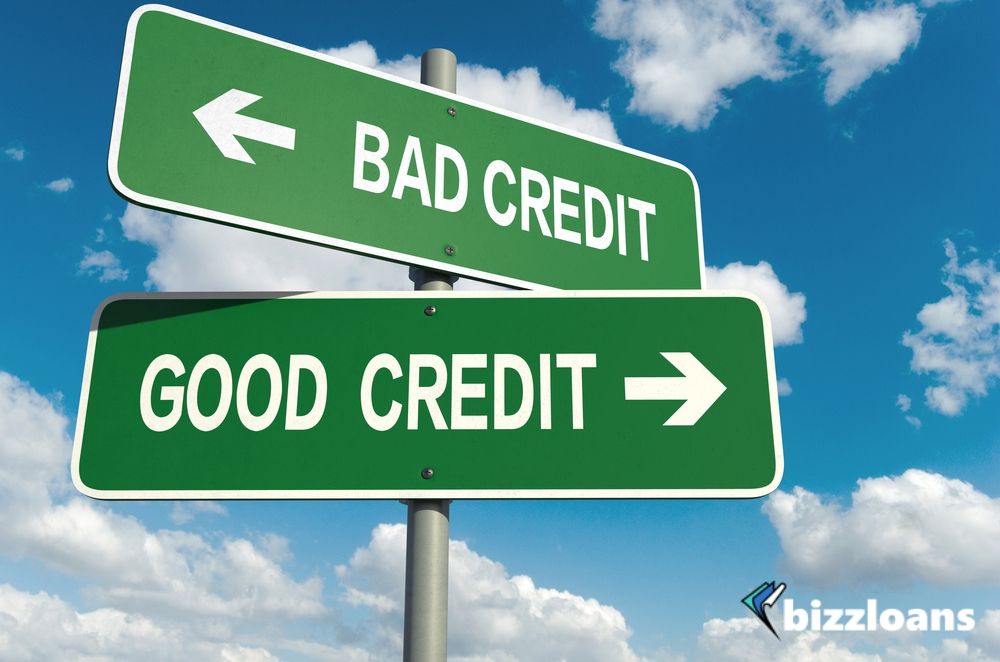Deciding to start a business seems easy. All you need is the will and determination to begin something, and sustain it for as long as you can. However, sheer will and determination are not enough to get a business running. You would need another essential thing – money.
Although many first-time business owners head into the game with their savings, most decide to start their business with a loan. Applying for a business loan is not as simple as it seems. For the most part, most banks and loan companies would need to look into your personal finance records before approving your application. This is a standard procedure, regardless of where you choose to make your business loan.
If you’re seriously considering to start your own business, you should take note of something significant – your credit history. In this article, we will be talking about how your credit history can affect your prospects in applying for a business loan.
ALL YOU NEED TO KNOW ABOUT CREDIT SCORES
What is a credit score?
A credit score is a number that sets the creditworthiness of an individual based on a person’s credit history. Credit scores are used by lenders to evaluate the probability of an individual paying his or her dues. People with a high credit score are considered to be financially trustworthy, which means that they are very likely to pay their debts on time and based on terms agreed upon. Credit scores range from 300 to 850.
The most common credit-scoring system is called the FICO score – created by the Fair Isaac Corporation. FICO determines an individual’s credit score by taking the following areas into account:
- Payment history
- Length of credit history
- Types of credit used
- New credit accounts
- The current level of indebtedness
Generally, a score above 650 indicates an outstanding credit history. If you have a score of 650 and above, you will find it a bit easier to apply for loans with favourable terms. However, if you have a score of 620 and below, you might not have the same luck. Keep in mind that your overall creditworthiness is not only determined by your credit score. Companies will also take other information such as your income, job, and type of credit request into consideration before they make a decision.
What makes up a credit profile?
A credit profile, also known as a credit report, contains a list of your borrowing and payment history. The credit report is the basis of the credit score. Everyone who has made a loan or is associated with a credit-based product will have a credit profile. Essentially, the credit profile can help a lender determine whether a potential client can consistently pay bills on time and as agreed upon.
Credit profiles can be a direct representation of a person’s financial responsibility. The report also informs lenders that they can trust the person with better rates and reasonable terms.
The information that can greatly influence a person’s credit profile include the following:
Payment history. The most critical factor of calculating your credit score is your payment history. To have a positive payment history, you have to make sure you have to pay at least the minimum amount you owe on all your credit accounts before they are due.
How you manage your charges. The ratio between the number of times you choose to charge and your credit limit can also affect your credit profile. Basically, the less you use any of your credit lines, the better your credit profile.
Prioritise your old accounts. Refrain from opening or applying for a new credit count. Keeping an old account open and in good standing shows consistency, and will reflect positively on your profile.
Business Credit Profile vs. Personal Credit Profile
For upcoming business owners, you should also be aware that there is such a thing as a business credit profile. Just like a personal credit profile, a business credit profile contains information on how business owners deal with the financial obligations of their business. You can only have one credit profile, but you can have more than one business credit profile because a separate credit profile is created for each business.
When it comes to your credit score, you will find that it is much easier to maintain and improve your business credit score. Business credit scores are based on how you pay your business’s bills, the amount of debt you owe, and the type of industry you operate in.
Your business credit capacity is also much higher than your personal credit capacity, which means your chances of raising the funds you need to grow your business are better.
BUSINESS LOANS AND WHY YOUR CREDIT SCORE IS IMPORTANT TO SETTING UP A BUSINESS
Once you have finally decided to start your own business, you should consider taking out a loan. A business loan has a lot of advantages, especially for first-time business operators. Aside from making things a little bit easier on the wallet, a business loan has a couple of advantages, as well.
First, banks and other moneylending companies don’t care about how you spend the money. If you are someone who prefers to work alone, it is highly recommended that you take out a loan. Unlike if you find an investor to help finance your budding business. Investors are more likely to interfere with how you deal with your business because investors are highly concerned about the return of their investments. Meanwhile, banks and moneylenders only care about being paid on time.
Business loans are quite easy to access, too. Since most banks and moneylending companies compete with each other, you will surely find a loan with terms and interest rates that are a perfect fit for your needs. Lastly, a loan ensures a fixed return. That means you’ll be paying the same amount of money, no matter how much profit you make. With an investor, you’ll be required to pay them an amount that depends on the money that you make.
However, one of the downsides of taking out a loan is this: not all will qualify for a loan. First-time business owners may face rejections, especially if they don’t meet the criteria meted out by the bank or loan company. Aside from that, most banks secure their loans by holding an asset or property owned by the business owner as collateral, in case payments cannot be made. This is also something that you have to think about. Finally, if you do apply successfully, there is still no guarantee that you will be granted all of the money you asked for.
How to determine if you are eligible for a loan?
If you are thinking about applying for a loan, there are three essential questions that you have to ask yourself first.
Can I repay a loan? Whether or not you can repay a loan is the very first thing you have to ask yourself. Taking out a loan is not the same as borrowing money from a friend. While many tend to forget about the latter, it is quite difficult to ignore a loan from a financial institution. For example, banks often set a period where you are expected to repay a loan. Loans can be payable within two, three, or five years. Some banks also offer loan periods of ten to fifteen years. Of course, this all depends on the amount that you will borrow. Remember, the longer the loan period, the higher the interest rate. Before taking out a loan, make sure that you can commit to paying it regularly.
How often do I make late payments? If you have taken out loans before, think about how often do you pay in time. Most financial institutions don’t take too kindly to people who continuously make late payments. If you’re not ready to receive notices regarding late payments, then you have to think twice about taking out a loan. Banks are notorious for pestering individuals who pay after the due date.
Am I willing to do everything I can to pay, even if something unexpected happens? Once you make a loan, you have to commit to repaying it. Repay your loan as soon as you can, if possible. As mentioned earlier, most financial institutions care only about getting paid. If you happen to miss a payment because of some emergency, using this as an excuse will not stop these financial institutions from seizing your assets until you can start repaying them.
If you are positive that you can hurdle through these situations with ease, then, by all means, go ahead and apply for that loan so you can finally start your business running. However, having the ability to surpass these situations doesn’t immediately mean that you can get that loan you applied for. You still have to surpass the creditors.
Basically, creditors will take note of these things once they take hold of your business credit profile:
Credit payment history. Creditors will place a high priority in taking note of any late or missed payments you have made in the past. If they see that you have a track record of missing payments and a history of bankruptcy, they may not accept your application. This is why it is highly recommended for business owners to do everything they can to pay all their bills on time. If you have a good credit history, creditors won’t have to think twice before approving your application.
Credit score. As mentioned, the higher your credit score, the bigger the chance of you having your business loan approved.
Current financial standing. Aside from your credit history, financial institutions may also ask for your business’s financial statements. You may also need to furnish your income statement and cash flow statement. These statements can give creditors some insight regarding the current financial state of your business.
Collateral. You also have to provide insurance guaranteed as security. Since lenders would want to secure their money, collateral will allow them to recover their cash just in case you stop paying. Some assets include real estate and expensive machinery.
TYPES OF BUSINESSES THAT CAN BE AFFECTED BY YOUR CREDIT SCORE
By now, it should already be clear to you how important your credit score is in securing a loan. But you should also realize that your credit score can have a direct effect on the type of business you are involved in. Here are the primary business types that may be affected by your credit score.
Sole Proprietorship. A sole proprietorship is a type of business that is owned by a single person. That is, there is no distinction between the business entity and the owner. Most small businesses run through sole proprietorship. This also means that your personal credit score will also serve as your business credit score.
Partnership. A partnership is just like a sole proprietorship. Only, it is run by two people. In a partnership, the owners are only made responsible for certain types of debt. Despite this, lenders would still want to know about the personal credit score of the partners involved.
Limited Companies. A limited company can either be public or private. Limited businesses are made up of an organisation of shareholders. The value of their shares determines the responsibility of each shareholder. For limited companies, although lenders would still like to know the credit score of each shareholder. But most of the time, this will not have much influence over whether or not a business loan is approved.
How can you improve your credit score?
Now that you are aware of the things that can hurt your credit score, there are also some things you can do to improve it. First on the list is to make sure that you pay your bills on time. Next, you can also reduce your credit card debt. Lastly, to ensure that you never go over your credit limits, you have to refrain from making requests for new credit. It may take a while for your credit score to change, but if you do these little things, your score is sure to improve.
READY TO MAKE THAT LOAN?
Deciding to start a business is never easy, especially if you worry about where to get the proper funding. Here at Bizzloans, we understand the needs of first-time business owners and willingly offer a solution by providing you with the funds you need to grow your business. By clicking below, you can get a free quote that won’t affect your credit score. Apply now, and you can get access to funds within 24 hours.
No Security Necessary
The main thing that makes unsecured loans more attractive than secured loans is the fact that they’re no security. It might be an obvious thing to highlight but it clearly matters. You won’t be weighed down by the pressure and worry associated with having collateral hanging over you and potentially being lost to the lender if you fail to make repayments. If you don’t want to take the risk of losing your collateral, you just need to opt for an unsecured loan instead. It’ll allow you to avoid any risks associated with secured loans.
Build Up Your Future Credit Score
By taking out a loan and then paying it off on time, you will help to build or repair your credit score. Many companies are dealing with poor credit, but by taking out an unsecured loan with a lender that is happy to lend to companies with poor credit, you can start to turn the situation around. Meeting regular repayment deadlines shows the world that you are able to stay on top of your financial obligations and pay off the money you owe, and that will only help your business going forward.
Why Your Business Might Want to Take Out an Unsecured Loan
There are lots of reasons why your business might take out a loan, as well as reasons not to. You shouldn’t take out a loan to cover running costs, but if you want to do other things, such as the things we’re going to discuss below, an unsecured business loan can be ideal.
Grow and Expand
Most entrepreneurs have big plans for their businesses. They want to ensure that their business is one that’s got a bright future. So if the time has come for you to grow and expand your business, you should think about whether taking out an unsecured business loan might help you to do that. It could be exactly what you need to get your business moving in the right kind of direction. It takes money and investment to grow your business and a loan might just be the ideal solution.
Take on More Clients and Customers
If your business doesn’t currently have the resources to deal with more customers and clients, it could be time to scale things up. However, that’s something that costs money, whether you like or not. Taking out an unsecured business loan could help improve the resources your business has available. It could mean hiring more people so that you have the human resources needed to take on more clients and make more customers happy. The loan will cover the costs associated with doing that and it’ll pay for itself if you’re able to improve your profits as a result.
Fund a New Marketing Campaign
Maybe it’s the case that attracting new customers to your business is where your problems lie. It’s not always easy to get your voice heard and make people aware of why they should be taking notice of your business. An unsecured loan could be used to fund a new marketing campaign that gets your message out there and makes more people interested in your business and what it’s offering. So if you have an idea for a marketing campaign that you think might work but you don’t have the financing for it, consider a loan.
Improve with Fewer Risks
The chance to improve your business in the many ways mentioned above offers you a real opportunity that you might want to grasp. Secured loans can offer the same access to financing but come with more risks to your business. With an unsecured loan, you can reap all the rewards that come with having the cash to invest in your business without having to worry about the risks adversely affecting the business in the future. The chance to improve with fewer risks attached to that chance should not be ignored or dismissed.
The Requirements for Getting an Unsecured Business Loan
There are some requirements you’ll need to be aware of before you take out an unsecured business loan. These aren’t too harsh or restrictive at all, but they are important.
24 Month Limit
When you take out an unsecured loan from Bizzloans, you have to pay the loan back within 24 months. That’s the maximum repayment term that’s on offer. Of course, that won’t be a problem for the vast majority of businesses out there. It’s important that you look at the finances closely and decide for sure that this is something your business is going to be able to do. You’ll have a chance to do this when you get a quote from us, so you’ll know exactly what you’re signing up to.
Business Bank Statements
To ensure your business is in a financial position to take on a loan of the size you’ve applied for, you’ll need to simply submit your business’s bank statements. This allows us to ensure that we lend responsibly and don’t burden you with a debt that is too much for you to take on. It’s in both your best interests and ours that you’re able to handle the loan that you take on.
Photo ID
To ensure everything is correct and proper, and you are who you say you are, you have to submit a photo ID. This is common practice and ensures that all financial transactions are above board and in order. It’s very easy to do and needn’t be a headache for you. Once we are satisfied with your application, you’ve provided the bank statements and we’ve checked your ID, it won’t be long before you have access to the loan you applied for.
Getting an unsecured business loan for your company could be just what it needs right now. It’s a much safer option than taking out a secured loan and you’ll be accepted much faster. Don’t hesitate to get in touch with us here at Bizzloans if you’re thinking of taking out an unsecured business loan.





